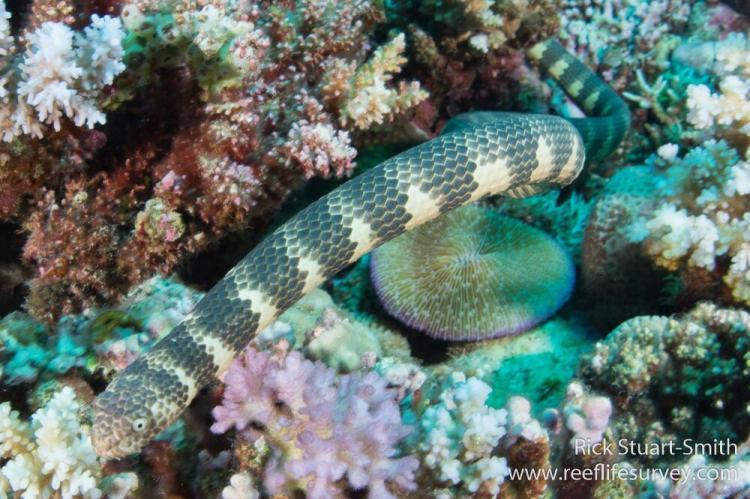Genetic variety of sea snakes much more diverse than expected
A recent study suggests that the genetic diversity of sea snakes may have been underestimated.
After collecting genetic samples from more than 550 sea snakes in the tropical shallow waters around Australia, Dr Vimoksalehi Lukoschek from the ARC Centre of Excellence for Coral Reef Studies discovered that the genetic diversity of sea snake populations there had been largely overlooked.
She highlighted this in a study published in a recent issue of the Diversity and Distributions journal.
According to her, scientists had been unaware of how genetically different sea snakes populations were, depending on whether they were from the Western Australian coast, Timor Sea, Gulf of Carpentaria or the Great Barrier Reef. She stressed the importance of this genetic distinctiveness, as it meant that the region was home to genetic diversity not found elsewhere in Australia.
"If those populations die out, then that biodiversity and potential for adaptation is lost forever," she said.
"Also, genetic differences of sea snakes between reefs around Australia mean that if a species disappears from a particular reef, they are unlikely to be replenished by dispersal of juveniles or adults from adjacent reefs," she added.
With regards to the sudden disappearance of sea snakes at the Ashmore Reef in the Timor Sea and their decline at protected reefs in New Caledonia and the southern Great Barrier Reef, Dr Lukoshek said that none of the obvious threats like habitat changes or fishing had been observed, so other possible causes included disease, invasive species, pollution, seismic surveys or recruitment failure.
She suggested the importance of targetted research into habitat and diet requirements, reproductive biology, disease susceptibility and the impact of man-made processes: "It’s important we investigate sea snakes in particular, as traditional conservation actions that focus on tackling common causes of species decline, such as habitat loss, may not optimise the conservation of genetic divergence and diversity in these vulnerable populations."
Dr Lukochek concluded that the study's findings suggested that "it is imperative to reduce stressors to coastal WA [Western Australia] habitats including minimising the impacts of trawling and reducing the numerous anthropogenic impacts on the environment."


